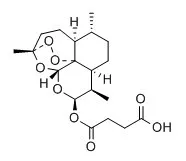
ChemFaces products have been cited in many studies from excellent and top scientific journals
Contact Us
Order & Inquiry & Tech Support
Tel: (0086)-27-84237683
Tech: service@chemfaces.com
Order: manager@chemfaces.com
Address: 176, CheCheng Eest Rd., WETDZ, Wuhan, Hubei 430056, PRC
How to Order
Orders via your E-mail:
1. Product number / Name / CAS No.
2. Delivery address
3. Ordering/billing address
4. Contact information
Order: manager@chemfaces.com
Delivery time
Delivery & Payment method
1. Usually delivery time: Next day delivery by 9:00 a.m. Order now
2. We accept: Wire transfer & Credit card & Paypal
Citing Use of our Products
* Packaging according to customer requirements(5mg, 10mg, 20mg and more). We shipped via FedEx, DHL, UPS, EMS and others courier.
According to end customer requirements, ChemFaces provide solvent format. This solvent format of product intended use: Signaling Inhibitors, Biological activities or Pharmacological activities.
| Size /Price /Stock |
10 mM * 1 mL in DMSO / $10.8 / In-stock |
Other Packaging |
*Packaging according to customer requirements(100uL/well, 200uL/well and more), and Container use Storage Tube With Screw Cap |
More articles cited ChemFaces products.
- J Sep Sci.2020, 43(22):4148-4161.
- Vietnam J. Chem.2023, 61(3),308-317
- Biomedicine & Pharmacotherapy...2020...
- Molecules.2019, 24(2):329
- International. J. of Food Propert...2017...
- Plants2022, 11(3),294.
- Preprints2022, 202211.0388.v1.
- Braz J Med Biol Res. 2016, 49(7)
- Appl. Sci.2022, 12(4), 2032.
- Food Chem.2017, 228:301-314
- Molecules.2022, 27(22):7887.
- Int Immunopharmacol.2019, 71:22-31
- Cell Mol Biol(Noisy-le-grand)...2019...
- J Pharm Biomed Anal.2018, 151:32-41
- J. of Med. Plant Research.2013, 90-151
- J Insect Sci.2020, 20(5):18.
- Neurochem Int.2020, 133:104629
- QASCF2022, 14(4).
- Appl. Sci. 2021, 11(17),7829
- Journal of Functional Foods...2022...
- Acta Chromatographica2016, 29(3)
- Int J Mol Sci.2022, 23(21):13112.
- Metabolites2023, 13(1), 3.
- More...
Our products had been exported to the following research institutions and universities, And still growing.
- Hamdard University (India)
- University of Wisconsin-Madison (USA)
- University of Virginia (USA)
- National Research Council of Ca... (Canada)
- Center for protein Engineering ... (Belgium)
- Sri Ramachandra University (India)
- Kamphaengphet Rajabhat University (Thailand)
- Donald Danforth Plant Science C... (USA)
- S.N.D.T. Women's University (India)
- Universidade da Beira Interior (Germany)
- Massachusetts General Hospital (USA)
- More...






 Cell. 2018 Jan 11;172(1-2):249-261.e12. doi: 10.1016/j.cell.2017.12.019.IF=36.216(2019)
Cell. 2018 Jan 11;172(1-2):249-261.e12. doi: 10.1016/j.cell.2017.12.019.IF=36.216(2019) Cell Metab. 2020 Mar 3;31(3):534-548.e5. doi: 10.1016/j.cmet.2020.01.002.IF=22.415(2019)
Cell Metab. 2020 Mar 3;31(3):534-548.e5. doi: 10.1016/j.cmet.2020.01.002.IF=22.415(2019) Mol Cell. 2017 Nov 16;68(4):673-685.e6. doi: 10.1016/j.molcel.2017.10.022.IF=14.548(2019)
Mol Cell. 2017 Nov 16;68(4):673-685.e6. doi: 10.1016/j.molcel.2017.10.022.IF=14.548(2019)